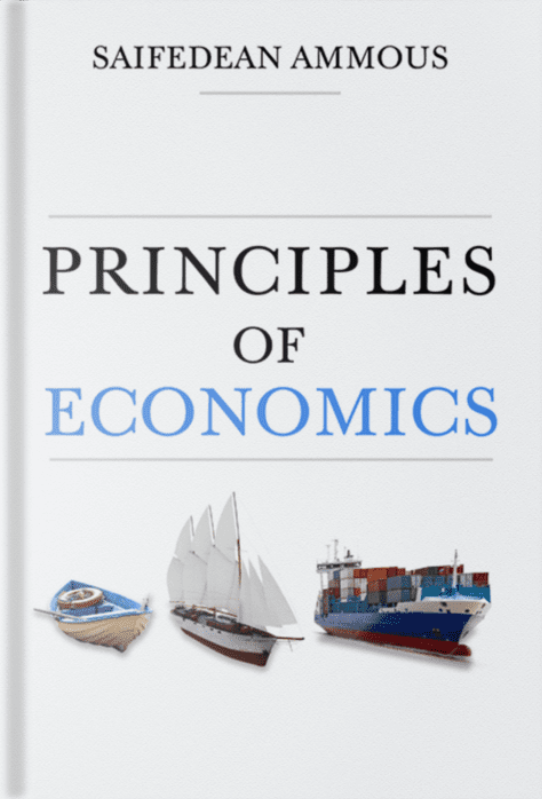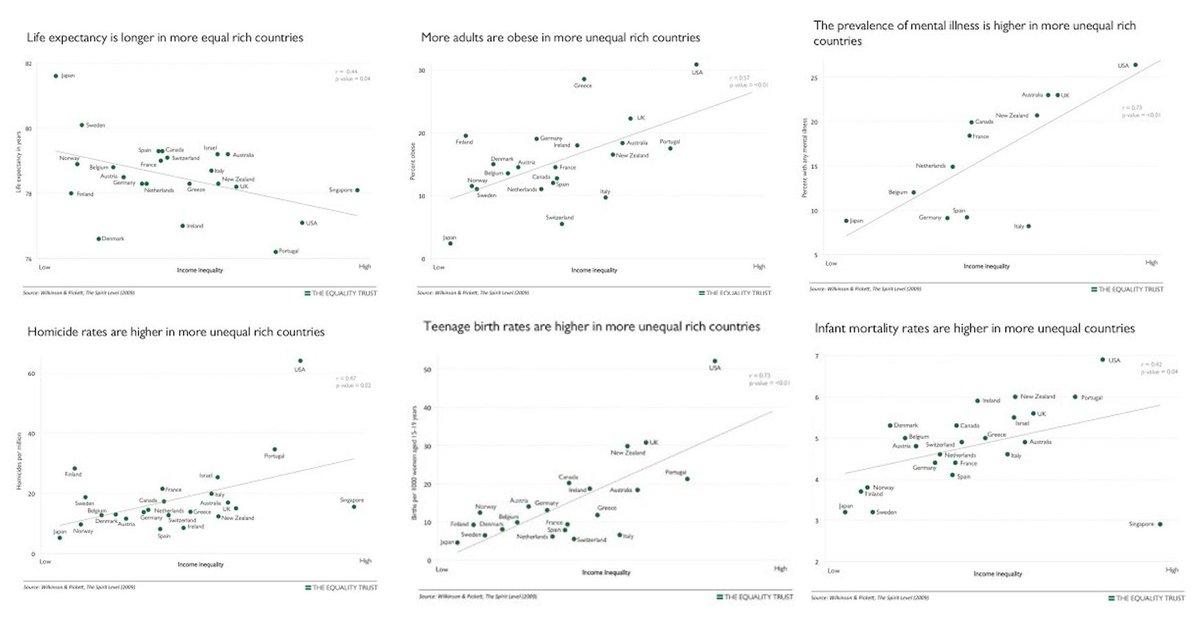
The manufacture of collectables by pre-historic humans was the first step on the road to creating money.
@NickSzabo4's epic essay "Shelling Out" describes how and why this happened.
This illustrated thread summarises Nick's 12,000 words in 12 Tweets.👇
@NickSzabo4's epic essay "Shelling Out" describes how and why this happened.
This illustrated thread summarises Nick's 12,000 words in 12 Tweets.👇
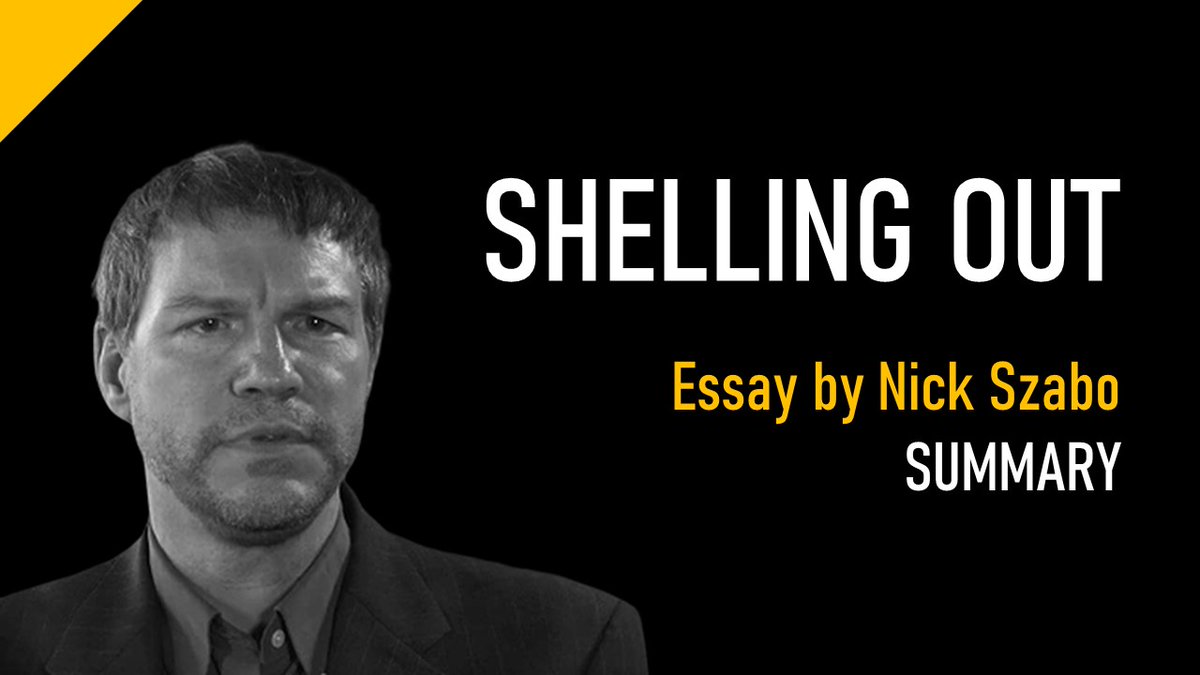
1/ Most hunter gatherers lived a precarious existence on the brink of starvation.
But we know from archaeological records that they made and collected jewellery.
The fact that early humans devoted their scarce resources to this seemingly frivolous activity merits exploration.
But we know from archaeological records that they made and collected jewellery.
The fact that early humans devoted their scarce resources to this seemingly frivolous activity merits exploration.

2/ Biologist J. M. Smith drew on game theory to describe the way humans evolve to propagate their genes.
Whilst individual humans might benefit from robbing the weak, cooperative tribes do better overall. Cooperation represents the "Nash Equilibrium" that leads to group survival
Whilst individual humans might benefit from robbing the weak, cooperative tribes do better overall. Cooperation represents the "Nash Equilibrium" that leads to group survival

3/ But cooperation isn’t easy.
In small societies humans can reciprocate favours.
But after a certain point, we can’t keep track of who has given what to whom. People estimate value differently. Early favours are worth more than late ones.
These factors can lead to disputes
In small societies humans can reciprocate favours.
But after a certain point, we can’t keep track of who has given what to whom. People estimate value differently. Early favours are worth more than late ones.
These factors can lead to disputes

4/ By collecting items like teeth, flint, and shells, early humans found a solution.
Although trade initially occurred rarely, the exchange of collectables reduced the need for favour tracking.
Because they were durable they could also act as a kind of "starvation insurance".
Although trade initially occurred rarely, the exchange of collectables reduced the need for favour tracking.
Because they were durable they could also act as a kind of "starvation insurance".
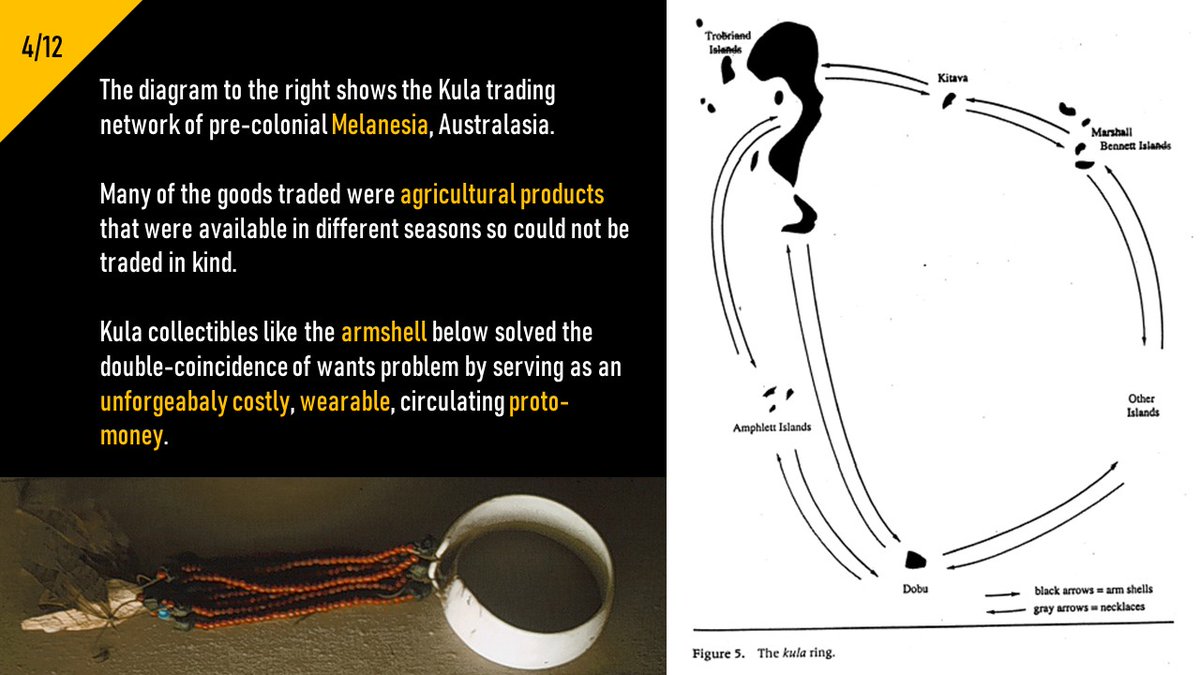
5/ During hard times, collectables could be exchanged with foreign tribes for food.
Spot trades allowed tribes involved to benefit from greater:
1. abundance of meat
2. availability of meat at different times
3. nutritional variety
4. productivity through specialisation
Spot trades allowed tribes involved to benefit from greater:
1. abundance of meat
2. availability of meat at different times
3. nutritional variety
4. productivity through specialisation
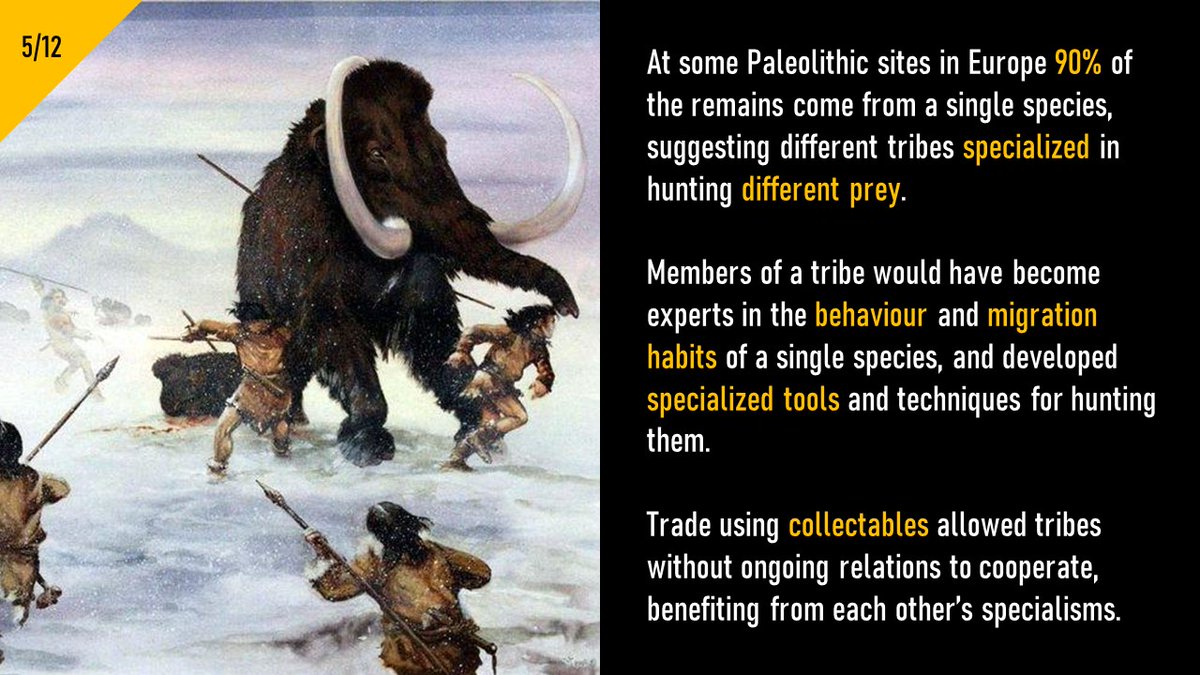
6/ Collectables' durability also allowed for:
>Wealth to be transferred inter-generationally
>Dowries to be paid, allowing for inter-tribal marriage
>Pacification of hostile tribes by serving as an item of tribute
>Compensation payments that could dampen cycles of vengeance
>Wealth to be transferred inter-generationally
>Dowries to be paid, allowing for inter-tribal marriage
>Pacification of hostile tribes by serving as an item of tribute
>Compensation payments that could dampen cycles of vengeance
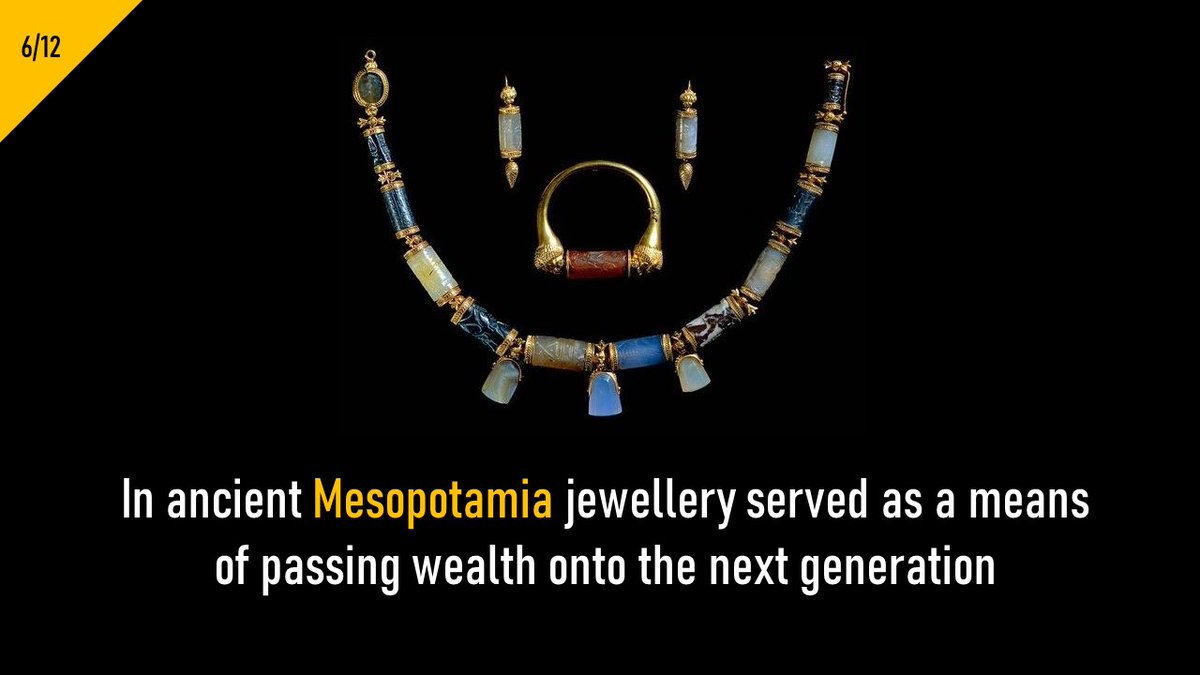
7/ But not anything can become a collectable.
The item in question had to be:
1. Transportable – carriable and easy to hide, hence the popularity of jewellery.
2. Unforgeably costly – creating scarcity that constrained supply
3. Verifiable – appraisable by simple observations
The item in question had to be:
1. Transportable – carriable and easy to hide, hence the popularity of jewellery.
2. Unforgeably costly – creating scarcity that constrained supply
3. Verifiable – appraisable by simple observations

8/ Archaeological evidence shows that societies all over the world used collectables with these qualities.
Examples include:
>Ostrich-egg beads – Kenya Rift Valley
>Mammoth ivory – Sungir
>Silver coils – Sumer
>Glass beads – Mali
>Wampum – North America
>Whales’ teeth – Fiji
Examples include:
>Ostrich-egg beads – Kenya Rift Valley
>Mammoth ivory – Sungir
>Silver coils – Sumer
>Glass beads – Mali
>Wampum – North America
>Whales’ teeth – Fiji

9/ Gradually, as its trade value became better understood, people started to standardise jewellery to increase its fungibility.
Standardisation aided the transition to coinage, that began in Lydia around 700 BC.
Coins possessed collectables' desired attributes in purer form.
Standardisation aided the transition to coinage, that began in Lydia around 700 BC.
Coins possessed collectables' desired attributes in purer form.
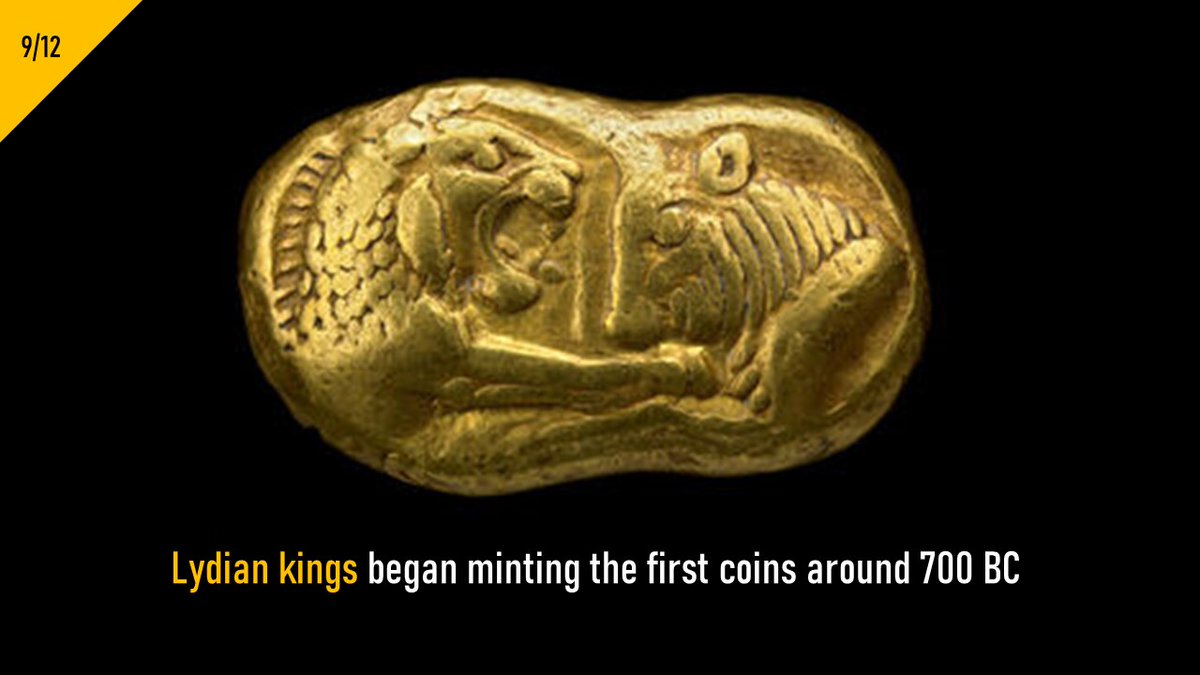
10/ Collectables served as an unprecedented technology for cooperation, allowing humans to become the most dominant species ever seen on the planet.
As the first secure forms of embodied value they served as a forerunner to today’s money.
As the first secure forms of embodied value they served as a forerunner to today’s money.
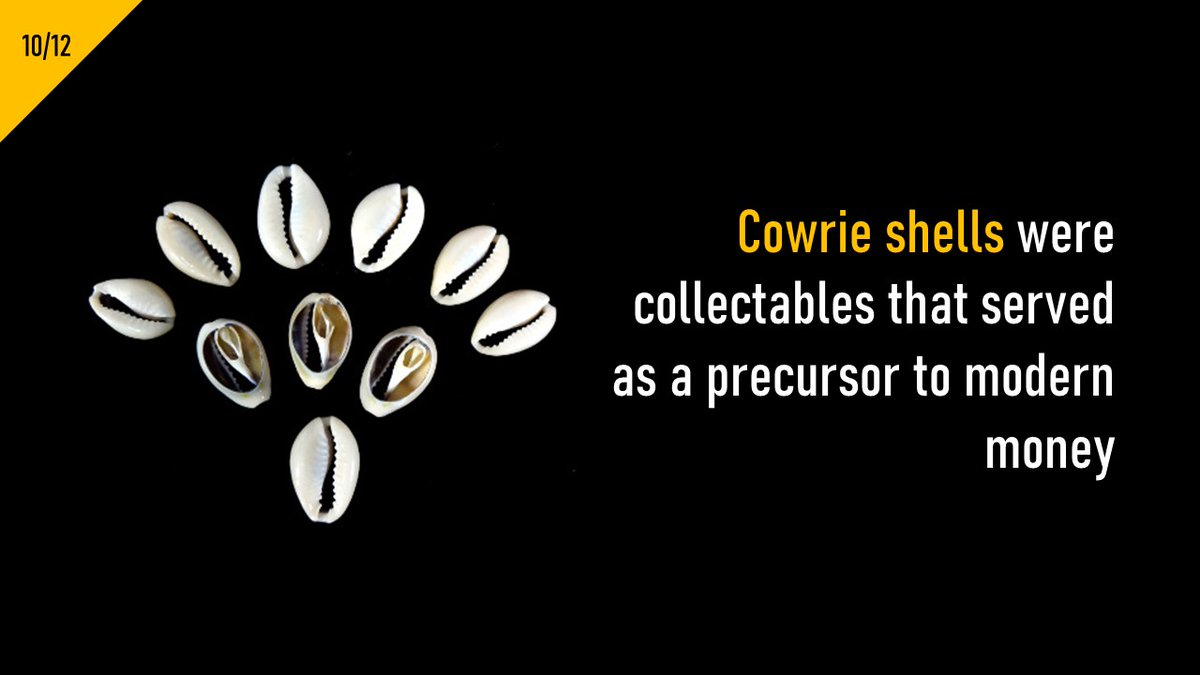
11/ COMMENT from @TheAustrian3:
Humans have a long history of using media of exchange to extend our networks of cooperation.
Coinage represented an improvement on collectables.
Fiat money can be seen as a partial regression: it improved on transportability, but is less scarce
Humans have a long history of using media of exchange to extend our networks of cooperation.
Coinage represented an improvement on collectables.
Fiat money can be seen as a partial regression: it improved on transportability, but is less scarce
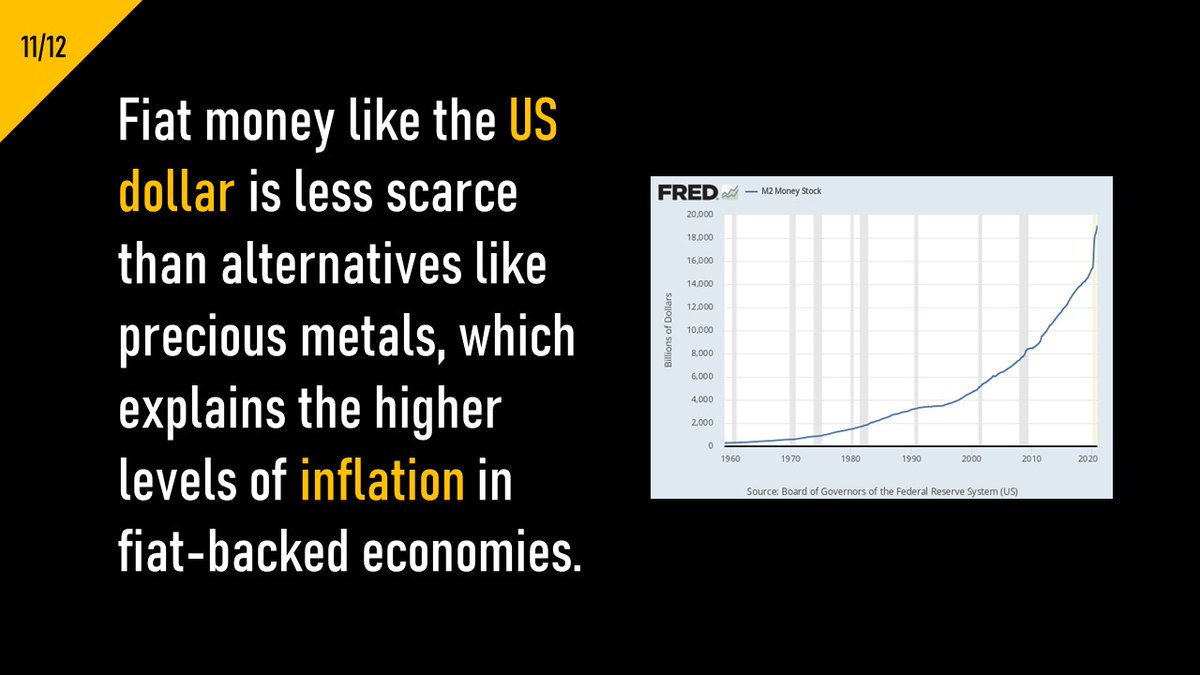
12/ Bitcoin ushered in the next stage in money's evolution.
No asset can outcompete it in terms of the attributes we value in collectables: transportability, scarcity and verifiability.
On that basis, we should be optimistic about the possibilities it represents for humankind
No asset can outcompete it in terms of the attributes we value in collectables: transportability, scarcity and verifiability.
On that basis, we should be optimistic about the possibilities it represents for humankind
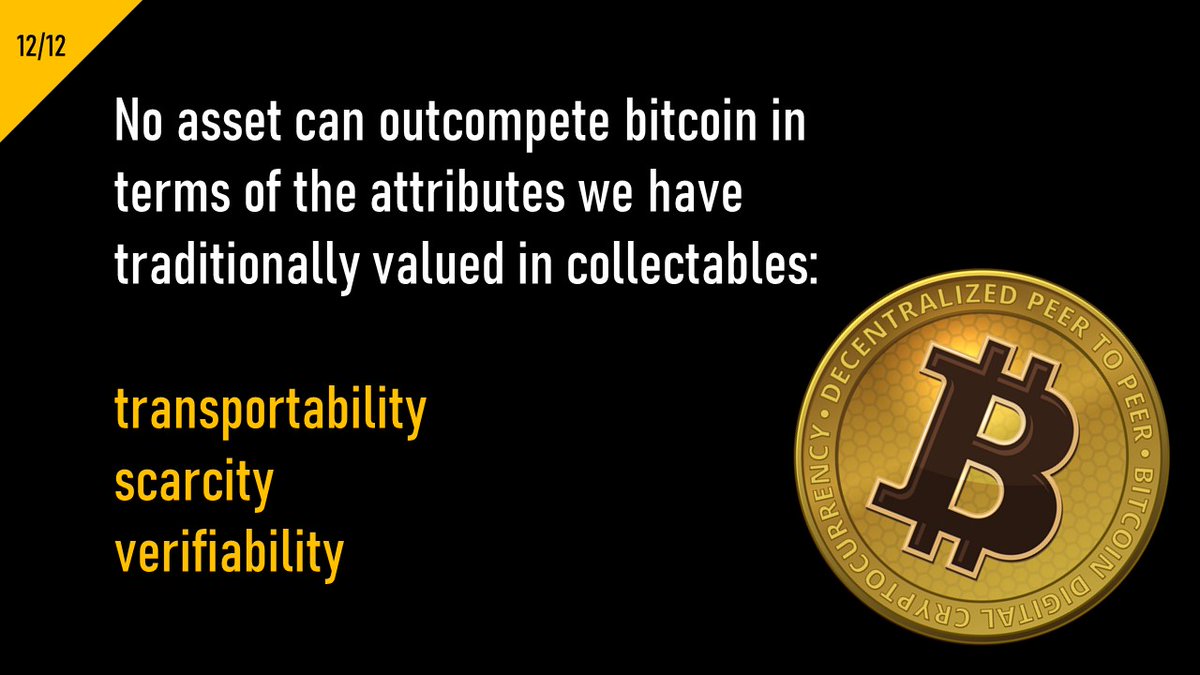
Thank you for reading.
@NickSzabo4's full article can be viewed here: nakamotoinstitute.org/shelling-out/
If you enjoyed this thread please re-Tweet to help its message reach a wider audience.
For more like this follow me at @TheAustrian3.
@NickSzabo4's full article can be viewed here: nakamotoinstitute.org/shelling-out/
If you enjoyed this thread please re-Tweet to help its message reach a wider audience.
For more like this follow me at @TheAustrian3.
• • •
Missing some Tweet in this thread? You can try to
force a refresh

